0049 Here is a comparison.
According to Ferdinand de Saussure (1859-1913), the father of modern linguistics, language consists of two arbitrarily related systems of differences, parole (speech) and langue (whatever goes on in our heads in regards to speech). Paroleas speech is like capital and acquisition, it provides the resources to utter and to decode. Langue as thought is like social behavior and the exercise of an order within the brain… er… mind.
Plus, parole [utter and decode] langue is a single act, just as matter [substance] form connotes a single thing or event.
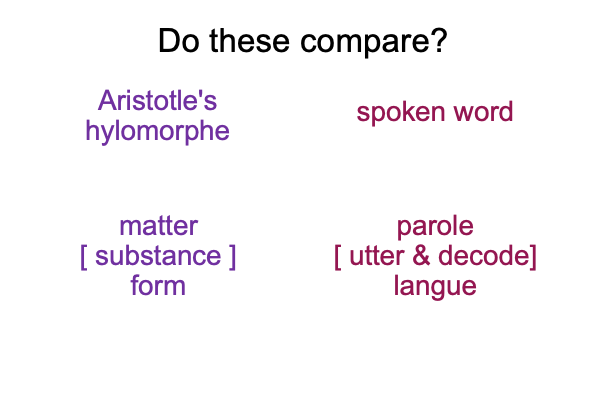
0050 Her is another comparison, which shows how the “substance” may be degenerate.
Degenerate?
Isn’t that like “either/or” depending on how two real elements approach one another?
For quantum physics, “degenerate” labels two or more standing waves that have the same (or “degenerate”) orbitalenergies.
0051 Taking the carbon atom as an example, electrons orbit the nucleus as standing waves. One electron has a magnetic moment that pairs with another electron’s magnetic moment. A magnetically coupled pair of electrons occupy an orbital (or standing wave).
Once two electrons occupy one orbital, then that is it. The orbital is occupied. All other electrons will be repelled.
Carbon has six protons in its nucleus and six electrons in orbitals around the nucleus. The first two electrons go into a spherical orbital close to the nucleus, labeled 1s, yielding 1s2 (two electrons in the first spherical orbital). The next two electrons have to park themselves further out on the second level, yielding 2s2.
Then, unlike the first level, the second level has additional orbitals corresponding to standing waves with one node (or empty location). These are called “p-orbitals”. After all, they are perpendicular to one another. So, the remaining two electrons go – willy nilly – into the p-orbitals, yielding a final electron configuration of 1s22s22p32 for the six electrons. Why willy nilly? The three “p” orbitals are “degenerate”. They have the same energy.
Here is a picture.
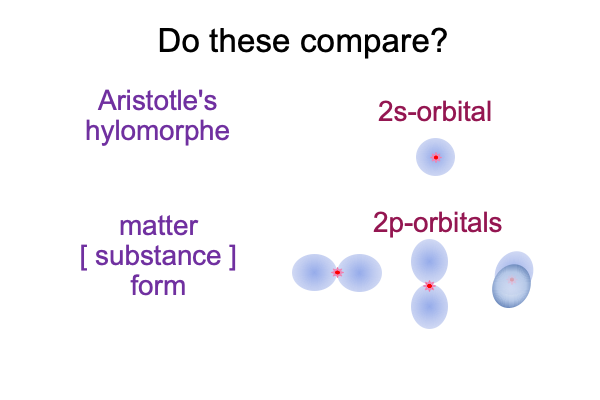
0052 Ah, can I guess why Zizek wants to use quantum mechanics as a “specialized language” for his discourse?
First, scientific terms such as “degenerate” are used by common folk to refer to human behaviors.
Second, there is an ambiguity concerning what a fundamental particle, such as an electron, actually is. Is it a charged particle or is it a moving or standing wave?
Here are two suggestions.
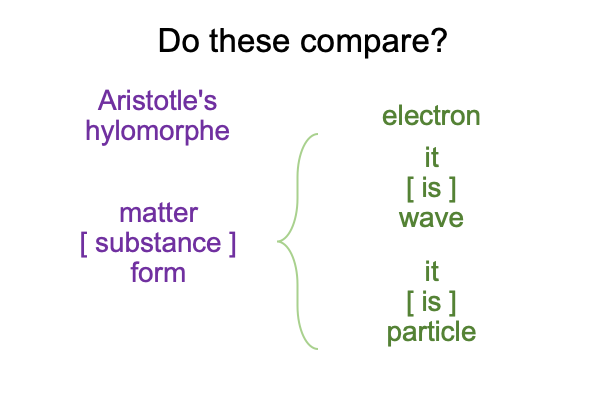
0053 Of course, whether one observes the electron as a particle or as a wave depends on the measuring apparatus. So, if matter associates to presence and if form associates to what the scientific instrument measures, then what is the electron? What is it?
Here is one option, where the electron is observed as a standing wave.
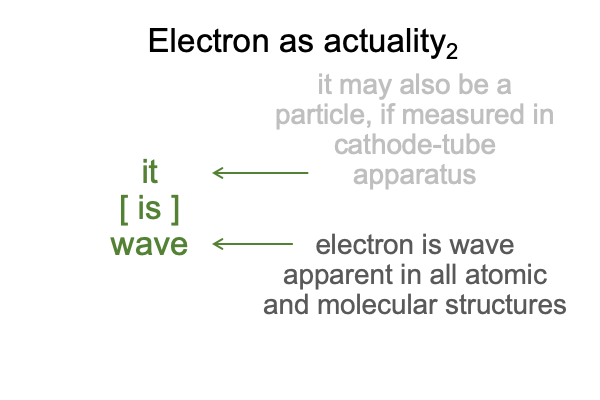
0054 Here is another option, where the electron is observed as a particle.
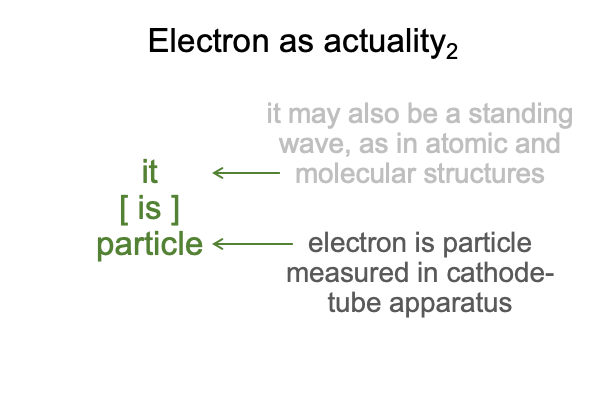
0055 Finally, the actuality2 that is the electron is only understood in a category-based nested form.
Here is a picture.
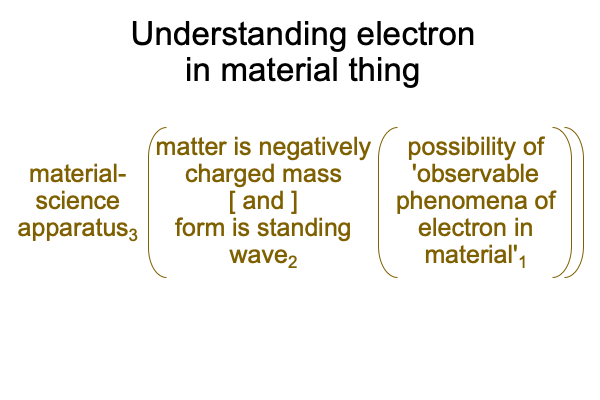
0056 The electron’s substance is well… difficult to imagine. Is [and] sufficient? It makes me wonder about all substances. A [substance] is not one of the two real elements. [Substance] is the contiguity between two real elements.
Clearly, a choice has been made by material science, at least, in regards to an electron.
It (matter) is a negatively charged, mass-bearing fundament.
Its form is a standing wave, orbital, and so forth.
The selection of the normal context3 and potential1 is a choice that curiously establishes the form that the actuality2manifests.
Here, the normal context is a measuring apparatus3 and the potential is observations and measurements of phenomena1.
0057 In the chapter three, on superpositions and athings, Zizek delves into Bell’s theorem and observations of spooky interactions at a distance. Things in the real are not what we imagine them to be. Or, should I say, what they imagine themselves to be? In this examination, I will make an effort to use examples that are not so cutting edge, such as the electron subject to a measurement apparatus.
My effort does not stand in the way of Zizek’s approach. If quantum mechanics is the mechanics of very small particles, and if these small particles constitute all material, then quantum mechanics should not be ignored in the philosophy of a real materialist… degenerate or not.
